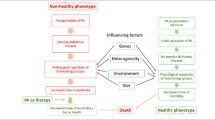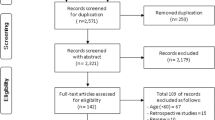Abstract
Objectives
The main aim of this study was to examine the association of sarcopenia and subjective memory complaints with the incidence of dementia in a population-based cohort of cognitively unimpaired older adults.
Design
Three-year longitudinal study.
Settings and Participants
A total of 2163 community-dwelling persons aged 65 years or older who participated in the National Health Interview Survey in Taiwan, 2017.
Measurements
Sarcopenia was determined based on SARC-F, a self-reported symptom-based questionnaire that includes five components: strength, assistance walking, rise from a chair, climb stairs, and falls. Two questions (“Do you have difficulties with your memory or attention?” and “Do you have difficulties with your memory only or attention only or both?”) were used to screen for subjective memory complaints (SMCs). The incidence of dementia was determined by data linkage to the Taiwan National Health Insurance claims database from 2018 to 2020.
Results
Among the 2163 participants without dementia at baseline, 135 had incident dementia during the 3-year follow-up, giving a crude incidence rate of 6.2% (135/2163). Compared to participants free from sarcopenia and SMCs, the adjusted hazard ratio for incident dementia was 1.83 (95% confidence interval [CI]: 1.23–2.72) for SMCs alone, 2.40 (95% CI: 1.17–4.93) for sarcopenia alone, and 2.49 (95% CI: 1.21–5.11) for coexisting SMCs and sarcopenia.
Conclusions
Our results indicate that sarcopenia screened with SARC-F and SMCs independently predict the cognitively unimpaired older adults at risk of incident dementia. Our findings highlight the importance of screening not only for cognitive but also muscle deficits to identify those at increased risk of incident dementia.

Similar content being viewed by others
References
Rolland Y, Czerwinski S, Abellan Van Kan G, et al. Sarcopenia: its assessment, etiology, pathogenesis, consequences and future perspectives. J Nutr Health Aging. 2008;12:433–450. doi:https://doi.org/10.1007/BF02982704
Morley JE, Abbatecola AM, Argiles JM, et al. Sarcopenia with limited mobility: an international consensus. J Am Med Dir Assoc. 2011;12:403–409. doi:https://doi.org/10.1016/j.jamda.2011.04.014
Bhasin S, Travison TG, Manini TM, et al. Sarcopenia Definition: The Position Statements of the Sarcopenia Definition and Outcomes Consortium. J Am Geriatr Soc. 2020;68:1410–1418. doi:https://doi.org/10.1111/jgs.16372
Sayer AA, Cruz-Jentoft A. Sarcopenia definition, diagnosis and treatment: consensus is growing. Age Ageing. 2022;51:afac220. doi:https://doi.org/10.1093/ageing/afac220
Wu TY, Liaw CK, Chen FC, Kuo KL, Chie WC, Yang RS. Sarcopenia Screened With SARC-F Questionnaire Is Associated With Quality of Life and 4-Year Mortality. J Am Med Dir Assoc. 2016;17:1129–1135. doi:https://doi.org/10.1016/j.jamda.2016.07.029
Malmstrom TK, Miller DK, Simonsick EM, Ferrucci L, Morley JE. SARC-F: a symptom score to predict persons with sarcopenia at risk for poor functional outcomes. J Cachexia Sarcopenia Muscle. 2016;7:28–36. doi:https://doi.org/10.1002/jcsm.12048
Landi F, Liperoti R, Fusco D, et al. Sarcopenia and mortality among older nursing home residents. J Am Med Dir Assoc. 2012;13:121–126. doi:https://doi.org/10.1016/j.jamda.2011.07.004
Yang Y, Xiao M, Leng L, et al. A systematic review and meta-analysis of the prevalence and correlation of mild cognitive impairment in sarcopenia. J Cachexia Sarcopenia Muscle. 2023;14:45–56. doi:https://doi.org/10.1002/jcsm.13143
Minett TS, Dean JL, Firbank M, English P, O’Brien JT. Subjective memory complaints, white-matter lesions, depressive symptoms, and cognition in elderly patients. Am J Geriatr Psychiatry. 2005;13:665–671. doi:https://doi.org/10.1176/appi.ajgp.13.8.665
Scheef L, Spottke A, Daerr M, et al. Glucose metabolism, gray matter structure, and memory decline in subjective memory impairment. Neurology. 2012;79:1332–1339. doi:https://doi.org/10.1212/WNL.0b013e31826c1a8d
Barnes LL, Schneider JA, Boyle PA, Bienias JL, Bennett DA. Memory complaints are related to Alzheimer disease pathology in older persons. Neurology. 2006;67:1581–1585. doi:https://doi.org/10.1212/01.wnl.0000242734.16663.09
Dik MG, Jonker C, Comijs HC, Bouter LM, Twisk JW, van Kamp GJ, Deeg DJ. Memory complaints and APOE-epsilon4 accelerate cognitive decline in cognitively normal elderly. Neurology. 2001;57:2217–2222. doi:https://doi.org/10.1212/wnl.57.12.2217
Jessen F, Wiese B, Bachmann C, et al. Prediction of dementia by subjective memory impairment: effects of severity and temporal association with cognitive impairment. Arch Gen Psychiatry. 2010;67:414–422. doi:https://doi.org/10.1001/archgenpsychiatry.2010.30
Lin SM, Apolinário D, Vieira Gomes GC, et al. Association of Cognitive Performance with Frailty in Older Individuals with Cognitive Complaints. J Nutr Health Aging. 2022;26:89–95. doi:https://doi.org/10.1007/s12603-021-1712-5
Al-Sari UA, Tobias JH, Archer H, Clark EM. Do subjective memory complaints predict falls, fractures and healthcare utilization? A two-year prospective study based on a cohort of older women recruited from primary care. Int J Geriatr Psychiatry. 2017;32:968–976. doi:https://doi.org/10.1002/gps.4555
Fielding RA, Vellas B, Evans WJ, et al. Sarcopenia: an undiagnosed condition in older adults. Current consensus definition: prevalence, etiology, and consequences. International working group on sarcopenia. J Am Med Dir Assoc. 2011;12:249–256. doi:https://doi.org/10.1016/j.jamda.2011.01.003
Cruz-Jentoft AJ, Baeyens JP, Bauer JM, et al. Sarcopenia: European consensus on definition and diagnosis: Report of the European Working Group on Sarcopenia in Older People. Age Ageing. 2010;39:412–423. doi:https://doi.org/10.1093/ageing/afq034
Wu IC, Lin CC, Hsiung CA, et al. Epidemiology of sarcopenia among community-dwelling older adults in Taiwan: a pooled analysis for a broader adoption of sarcopenia assessments. Geriatr Gerontol Int. 2014;14 Suppl 1:52–60. doi:https://doi.org/10.1111/ggi.12193
Li CL, Stanaway FF, Chang HY, Chen MC, Tsai YH. Joint predictability of physical frailty/pre-frailty and subjective memory complaints on mortality risk among cognitively unimpaired older adults. Eur J Ageing. 2023;20:17. doi:https://doi.org/10.1007/s10433-023-00765-y
Montejo P, Montenegro M, Fernandez MA, Maestu F. Subjective memory complaints in the elderly: Prevalence and influence of temporal orientation, depression and quality of life in a population-based study in the city of Madrid. Aging Ment Health. 2011;15:85–96. doi:https://doi.org/10.1080/13607863.2010.501062
Li CL, Chang HY, Shyu YL, Stanaway FF. Relative role of physical frailty and poor cognitive performance in progression to dementia. J Am Med Dir Assoc. 2021;22:1558–1559. doi:https://doi.org/10.1016/j.jamda.2021.02.022
Shih YH, Chang HY, Lu MI, Hurng BS. Time trend of prevalence of self-reported cataract and its association with prolonged sitting in Taiwan from 2001 and 2013. BMC Ophthalmol. 2014;14:128. doi:https://doi.org/10.1186/1471-2415-14-128
Folstein MF, Folstein SE, McHugh PR. Mini-mental state. A practical method for grading the cognitive state of patients for the clinician. J Psychiatr Res. 1975;12:189–198. doi: https://doi.org/10.1016/0022-3956(75)90026-6
Katzman R, Zhang MY, Qu OY, et al. A Chinese version of the mini-mental state examination: impact of illiteracy in a Shanghai dementia survey. J Clin Epidemiol. 1988;41:971–978. doi: https://doi.org/10.1016/0895-4356(88)90034-0
Cao L, Chen S, Zou C, et al. A pilot study of the SARC-F scale on screening sarcopenia and physical disability in the Chinese older people. J Nutr Health Aging. 2014;18:277–283. doi:https://doi.org/10.1007/s12603-013-0410-3
Woo J, Leung J, Morley JE. Validating the SARC-F: a suitable community screening tool for sarcopenia?. J Am Med Dir Assoc. 2014;15:630–634. doi:https://doi.org/10.1016/j.jamda.2014.04.021
Radloff L. The CES-D Scale: A self-report depression scale for research in the general population. Appl Psychol Meas. 1977;1:385–401. doi:https://doi.org/10.1177/014662167700100306
Andresen EM, Malmgren JA, Carter WB, Patrick DL. Screening for depression in well older adults: evaluation of a short form of the CES-D (Center for Epidemiologic Studies Depression Scale). Am J Prev Med. 1994;10:77–84.
Fine JP, Gray RJ. A proportional hazards model for the subdistribution of a competing risk. J Am Stat Assoc. 1999;94:496–509. doi:https://doi.org/10.2307/2670170
Putter H, Fiocco M, Geskus RB. Tutorial in biostatistics: competing risks and multistate models. Stat Med. 2007;26:2389–2430. doi: https://doi.org/10.1002/sim.2712
Beeri MS, Leugrans SE, Delbono O, Bennett DA, Buchman AS. Sarcopenia is associated with incident Alzheimer’s dementia, mild cognitive impairment, and cognitive decline. J Am Geriatr Soc. 2021;69:1826–1835. doi:https://doi.org/10.1111/jgs.17206
Waldorff FB, Siersma V, Vogel A, Waldemar G. Subjective memory complaints in general practice predicts future dementia: a 4-year follow-up study. Int J Geriatr Psychiatry. 2012;27:1180–1188. doi:https://doi.org/10.1002/gps.3765
Mitchell AJ, Beaumont H, Ferguson D, Yadegarfar M, Stubbs B. Risk of dementia and mild cognitive impairment in older people with subjective memory complaints: meta-analysis. Acta Psychiatr Scand. 2014;130:439–451. doi: 10.1111/acps.1233.
Kim HJ, Chung JH, Eun Y, Kim SH. Cortical Thickness and White Matter Hyperintensity Changes Are Associated With Sarcopenia in the Cognitively Normal Older Adults. Psychiatry Investig. 2023;20:581. doi:https://doi.org/10.30773/pi.2022.0200e
Cesari M, Vellas B. Sarcopenia: a novel clinical condition or still a matter for research? J Am Med Dir Assoc. 2012;13:766–767. doi:https://doi.org/10.1016/j.jamda.2012.07.020
Morley JE, Argiles JM, Evans WJ, et al. Nutritional recommendations for the management of sarcopenia. J Am Med Dir Assoc. 2010;11(6):391–396. doi:https://doi.org/10.1016/j.jamda.2010.04.014
Acknowledgements
This study was supported (in part) by grants (MOST 111-2410-H-182-003-MY3) from the National Science and Technology Council, Taiwan.
Author information
Authors and Affiliations
Corresponding author
Ethics declarations
Conflict ofinterest: The authors have no conflicts of interest to declare.
Ethical consideration: This research complied with the ethical rules for human experimentation stated in the Declaration of Helsinki.
Electronic Supplementary Material
Rights and permissions
About this article
Cite this article
Li, CL., Chang, HY. & Tsai, YH. Sarcopenia Screened with SARC-F and Subjective Memory Complaints Are Independently Associated with Increased Risk of Incident Dementia among Cognitively Unimpaired Older Adults. J Nutr Health Aging 27, 940–945 (2023). https://doi.org/10.1007/s12603-023-2006-x
Received:
Accepted:
Published:
Issue Date:
DOI: https://doi.org/10.1007/s12603-023-2006-x




